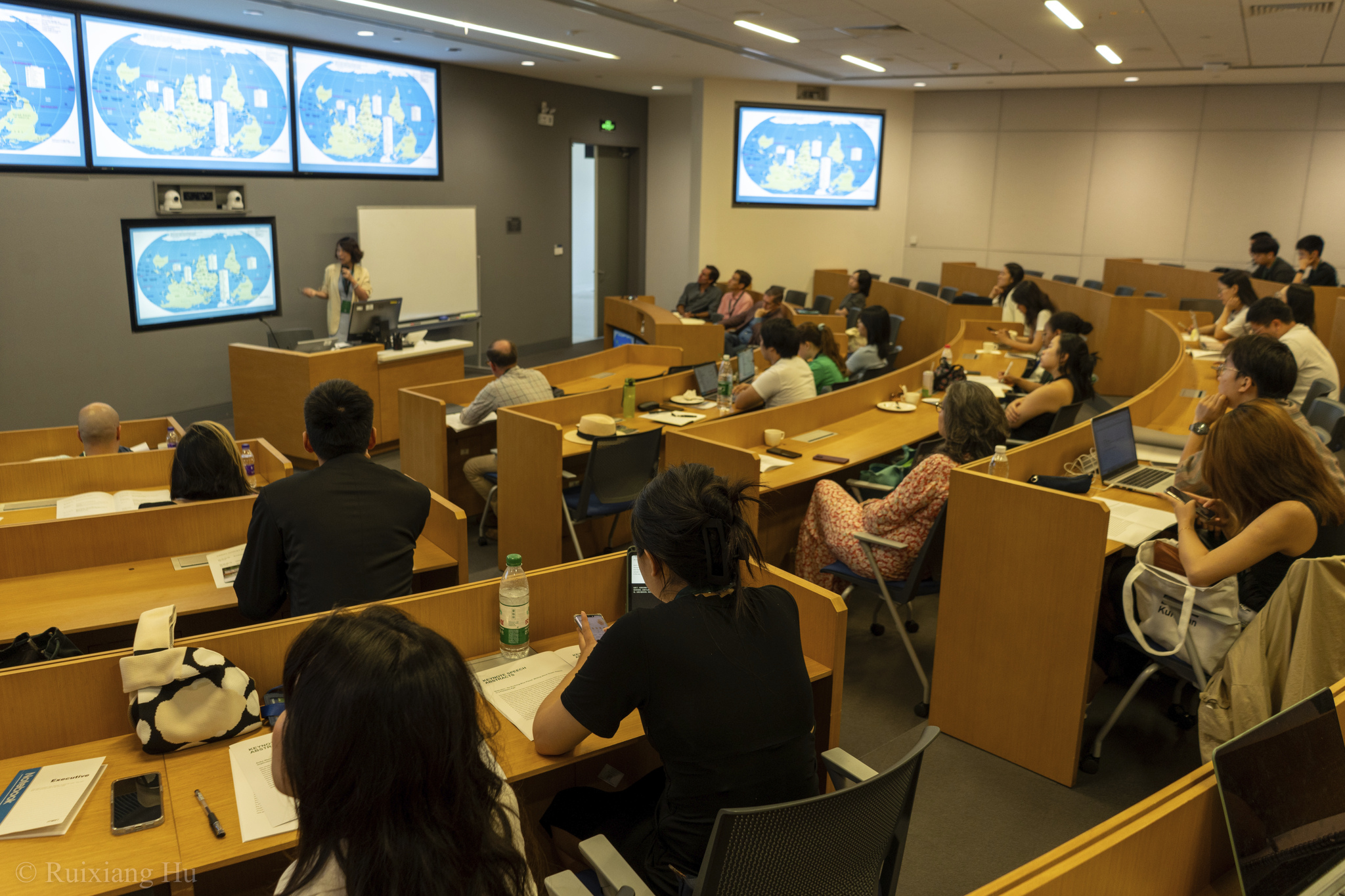Duke Kunshan University’s Humanities Research Center (HRC) hosted its 2024 Fall Conference, titled Humanities Matter: Ecological Crossroads, Past, Present, and Future, bringing together over 20 global scholars from renowned institutions, including Duke University, Peking University, Brigham Young University, and NYU Shanghai.

In the opening remarks, John Quelch, Duke Kunshan University’s Executive Vice Chancellor, Scott MacEachern, Vice Chancellor for Academic Affairs, and HRC Co-Directors Selina Lai-Henderson and Carlos Rojas highlighted the crucial role the humanities and arts play in addressing global ecological issues and their historical implications.
Ocean history and environmental change
Keynote speaker Shen Hou, a professor of environmental history from Peking University, delivered a lecture titled Writing About Ocean History in a Planetary Age. She encouraged the audience to explore ocean histories through natural, historical, and personal perspectives, urging people to bring environmental issues to light from the “aphotic zones” of their understanding.
Following the first keynote, DKU faculty members Nellie Chu, Keping Wu, and Renee Richer participated in a panel titled Plastics, Cities, and Borderlands: Thinking through History, Race, and Belongings. The panel touched on topics ranging from the rise of synthetic materials after World War II to the cultural and ecological impacts of water projects in Yunnan, the most southwestern province in China, and the importance of urban greenspaces in promoting biodiversity and social equity.
Humanities as a tool for global change
The second keynote address was given by Brian Roberts, a professor of English from Brigham Young University. In his lecture Archipelagic Thinking and the Environmental Humanities, he used compelling imagery, including a photograph of a baby albatross killed by plastic ingestion, to highlight the importance of shifting the responsibility for environmental degradation from individuals to corporations and governments.
Later panels explored the intersection of literature, poetry, and Chinese modernity with environmental challenges. DKU faculty members Stephanie Anderson, Ben Van Overmeire, and Qian Zhu presented on topics ranging from anthropomorphized poetry and Buddhist philosophy to the planning of Chinese towns in the early 20th century.
DKU’s new humanities research space
A major highlight of the event was the launch of DKU’s new Humanities Research Center Exhibition Hall, also known as the HUM Space. The space is designed to promote interdisciplinary collaboration through art exhibits, film screenings, and creative performances. The first exhibits showcased DKU faculty and student work, including a photography series by environmental science associate professor Binbin Li and a video installation on bird migration by assistant professor Chi-Yeung Choi. Student curators Davit Kavkasyan and Aastha Mangla contributed to a video installation titled Promise to Return, based on Choi’s bird migration footage.
Environmental risks and resilience
On the second day of the conference, the Visualizing Environmental Change panel featured DKU faculty members Joseph Giacomelli, Jimmy Choi, and Binbin Li, who discussed topics such as cloud seeding, bird migration, and the hidden dangers that urban infrastructure poses to wildlife. Another panel, Pedagogy for Sustainability, discussed the innovative pedagogy and interdisciplinarity of DKU102, “Let’s Talk About Climate Change,” co-led by professors James Miller, Coraline Goron, and Ding Ma, emphasized the integration of environmental studies across multiple academic disciplines.
The third keynote speaker, Erika Weinthal, the John O. Blackburn Distinguished Professor of Environmental Sciences and Policy at Duke University, gave a presentation titled Protecting the Environment and Infrastructure during War: Humanitarian Challenges. Her presentation shed light on the devastating effects of war on civilian infrastructure and the environment, focusing on the control of natural resources as a strategic tool in conflict.
Concluding reflections
The conference concluded with a final panel titled Artifice, Mud, Theater, and Christianity: Ecological Implications, featuring four faculty members from NYU Shanghai. Anna Greenspan discussed historical manipulations of greenspaces, while Jennifer Egloff explored humanity’s relationship with natural disasters through both scientific and religious lenses. Erica Mukherjee offered reflections on the symbolic importance of mud as a metaphor for resistance and preservation, and Jennifer Nan Dong discussed how theater can be a transformative tool for addressing environmental issues.

